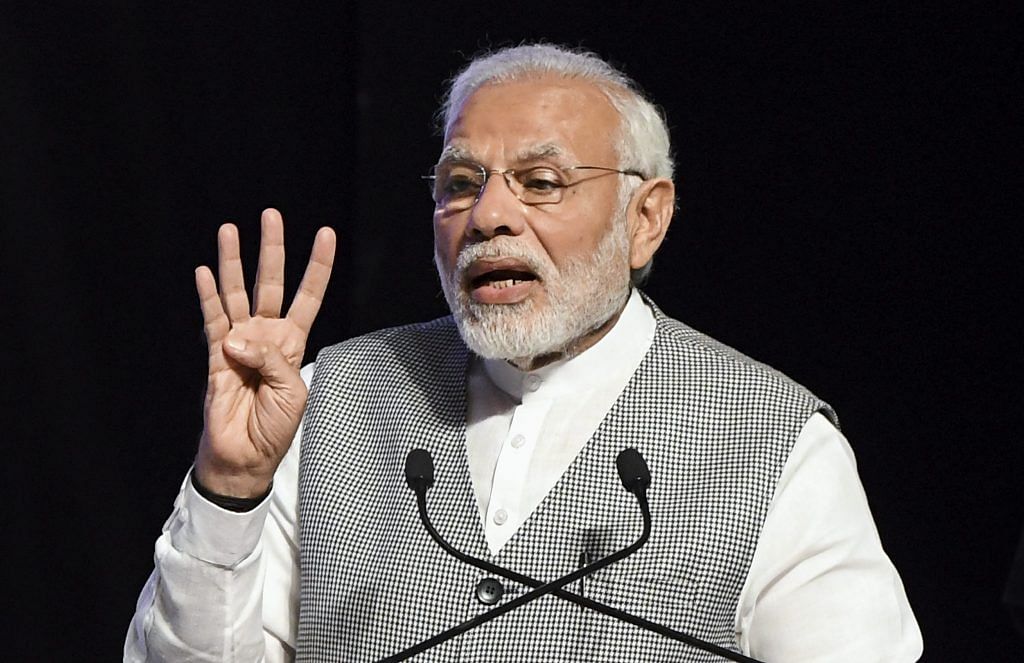Never has the separation of powers between executive and legislative organs been more necessary than today.
It has become increasingly clear that Prime Minister Narendra Modi runs a parliamentary system in a presidential style. This gives Indians the worst of both worlds: an unfettered executive with an automatic parliamentary majority – which, unlike true presidential systems, is not held in check by an independent legislature.
I have long been an advocate of a presidential system for India, something that surprises my party colleagues, who see its advocacy as merely enabling the entrenchment of someone like Modi in our country. Indeed, four years of Moditva rule in India have convinced me of the virtues of a presidential system – but for the opposite reason. Only a truly presidential system could keep the excesses India has been subjected to in check.
Let’s look at the record of the last four years under our nominally parliamentary system. The Modi government’s two most dramatic decisions – the overnight demonetisation of 86 per cent of India’s currency in value, and the so-called ‘surgical strikes’ across the Line of Control between India and Pakistan – were taken by the PM with a handful of unelected advisers rather than, as would be expected in a parliamentary system, by the cabinet.
Also read: Fuel prices are the poster child for the government’s mismanagement of the economy
Both were unilateral decisions made by the executive without any legislative input, not even by those legislators entrusted with formal executive authority in his own government. They were implemented by a small handful of bureaucrats who enjoyed the PM’s trust in total secrecy, in a manner that involved what former UN Secretary-General Boutros Boutros-Ghali once called ‘stealth and sudden violence’.
Such dramatic and stunning actions, conceived and conducted essentially in and by the PM’s office, appear to be a hallmark of Modi’s leadership style. He has more faith in bureaucrats, who are after all trained administrators, than in politicians, who only know how to win elections. In the cabinet reshuffle in September last year, it was telling that three of his four new ministerial appointees were former bureaucrats, two of whom had to be subsequently elected to the Upper House as required by the Constitution.
None of the usual constraints of the parliamentary system inhibit Narendra Modi. He has a majority in the Lok Sabha and does not need to waste time in legislative deal-making. He has a few token ministers from his allies in the cabinet, but they have very little authority and if they bridle at that, they are dispensable, since he does not need their parties to make up a majority – and they know that. He spends a large proportion of his time travelling – 59 foreign countries visited so far at the time of writing and countless destinations in India, the latter almost entirely in perpetual campaign mode.
Although it was an American president, Theodore Roosevelt, who spoke of his office as a ‘bully pulpit’ to preach to the nation, it is an Indian Prime Minister who has now discovered his position gives him a ‘bully pulpit’ too. It should be in Parliament that the Prime Minister exercises his considerable skills of oratorical persuasion, but Modi has spoken more often in foreign assemblies than in his own Lok Sabha.
Also read: Modi is no Obama, hasn’t reached out to Indians in pain: Shashi Tharoor on Alwar lynching
He disdains the legislative fray, for which he reveals thinly veiled contempt. As he has already demonstrated in Gujarat, in his view a legislative majority exists only to enable and institutionalise his executive power; once he has that, he does not need the legislature, except for the unavoidable task of passing his Budget and pushing through laws, both of which his majority enables him to do without serious legislative input.
The number of sittings of Parliament has declined precipitously, and when it meets, disruptions are frequent (and sometimes engineered by the government itself, which in 2018 passed its Budget without debate amid the din). As a result, Parliament has effectively ceased to be a forum to demand and receive accountability from the government. Answers to questions addressed to the Prime Minister are given by the minister of state in his office; the PM himself is usually absent.
It is Narendra Modi’s wilful railroading of the Indian Parliament that makes the case for a genuine presidential system amply clear – never has the separation of powers between executive and legislative organs been revealed to be more necessary than today.
Dr Shashi Tharoor is a Member of Parliament for Thiruvananthapuram and former MoS for External Affairs and HRD. He served the UN as an administrator and peacekeeper for three decades. He studied history at St. Stephen’s College, Delhi University, and International Relations at Tufts University. Tharoor has authored 17 books, both fiction and non-fiction; his most recent book is ‘Why I am a Hindu’. Follow him on Twitter @ShashiTharoor.
